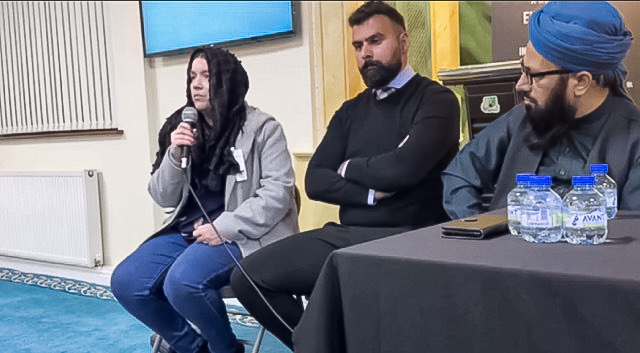With each new blasphemy controversy in the West, from The Satanic Verses to Charlie Hebdo, the corrosive effect on free expression worsens. In Wakefield, we see just how low the bar for blasphemy allegations has fallen, and how readily complaints are legitimised by our own institutions. As reported, four non-Muslim pupils were suspended from school after the unintentional scuffing of an English copy of the Quran. West Yorkshire Police said they were closely “liaising” with the school and that their enquiries “confirmed minor damage” to the text. In their response, the school and local authorities seem to give credence to an understanding of blasphemy which goes beyond the one advanced even by jihadists.
After a Batley schoolteacher was forced into hiding and a film, The Lady of Heaven, was pulled from cinemas, this is at least Britain’s third major blasphemy ‘affair’ in as many years. The recent review of Prevent drew attention to the frequency and danger of blasphemy controversies, but there is nothing that any counter-extremism initiative can do to address these persistent clashes in the UK. This is not a question of countering extremism, solvable with workshops on ‘British Values’ or critical thinking, but instead concerns the sovereignty of British law and the fundamentals of British democracy.
Prior to the aforementioned controversies, Glaswegian shopkeeper Asad Shah was brutally stabbed and stomped to death over blasphemy, and it seems almost a certainty to say that more people will be killed unless the British state and civil society can get a handle on these campaigns, and fast. This doesn’t mean workshops and interventions; rather, local councils and police forces must stop prizing “community engagement” to the exclusion of almost all other considerations, while positive community engagement or the cooling of tensions must mean more than caving to the whims of an offended minority. This approach leads to the embrace of barely concealed extremist figures in order to preserve local relations, but at the expense of the overall health of British democracy.
To reverse course requires using the measures which have been used to block Right-wingers and even a rapper from entering the country from abroad whereas, presently, preachers who lionise religious assassin Mumtaz Qadri can freely make fundraising trips from Pakistan to Britain which allow them to whip up blasphemy fervour at home. It means the public sector not rushing to adopt a definition of ‘Islamophobia’ which transparently protects belief as much as it is designed to protect individual human beings. It means mainstream political parties ejecting people who inflame these affairs — as one councillor did in his (now-deleted) description of the Wakefield page scuffing as a “desecration”. It means the police declining to have anything whatsoever to do with damage to a text, religious or otherwise.
They have failed to do this, and inadvertently lent legitimacy to the complaints of the offended, the outraged, and self-proclaimed community leaders. And a new, serious approach certainly means that counter-terrorism or social cohesion funding should not be going to those who look forward to the restoration of Taliban rule.
This is not about Prevent or counter-extremism; it is the very basics which Britain seems to be getting wrong at almost every turn. All this is nicely summed up by a particularly galling spectacle: a police officer and the fearful mother of an autistic child pleading innocence during what amounts to a modern British blasphemy tribunal.











Join the discussion
Join like minded readers that support our journalism by becoming a paid subscriber
To join the discussion in the comments, become a paid subscriber.
Join like minded readers that support our journalism, read unlimited articles and enjoy other subscriber-only benefits.
Subscribe